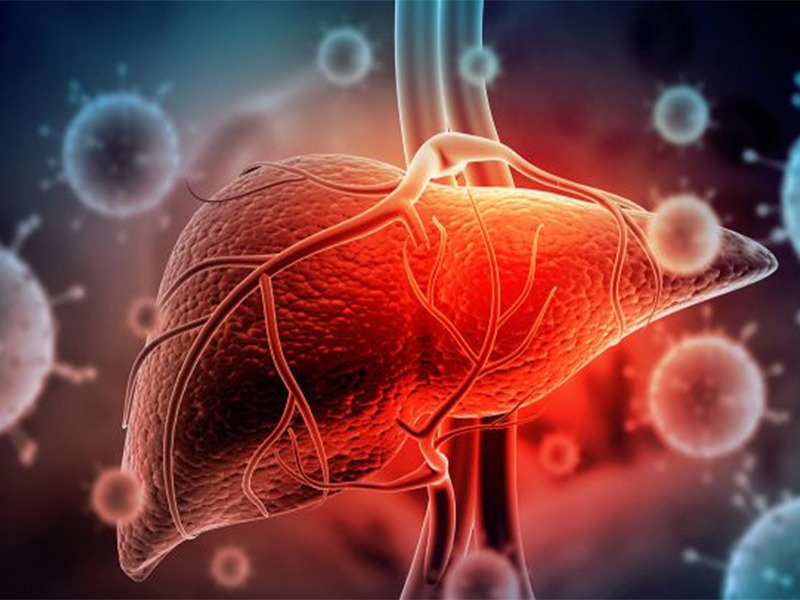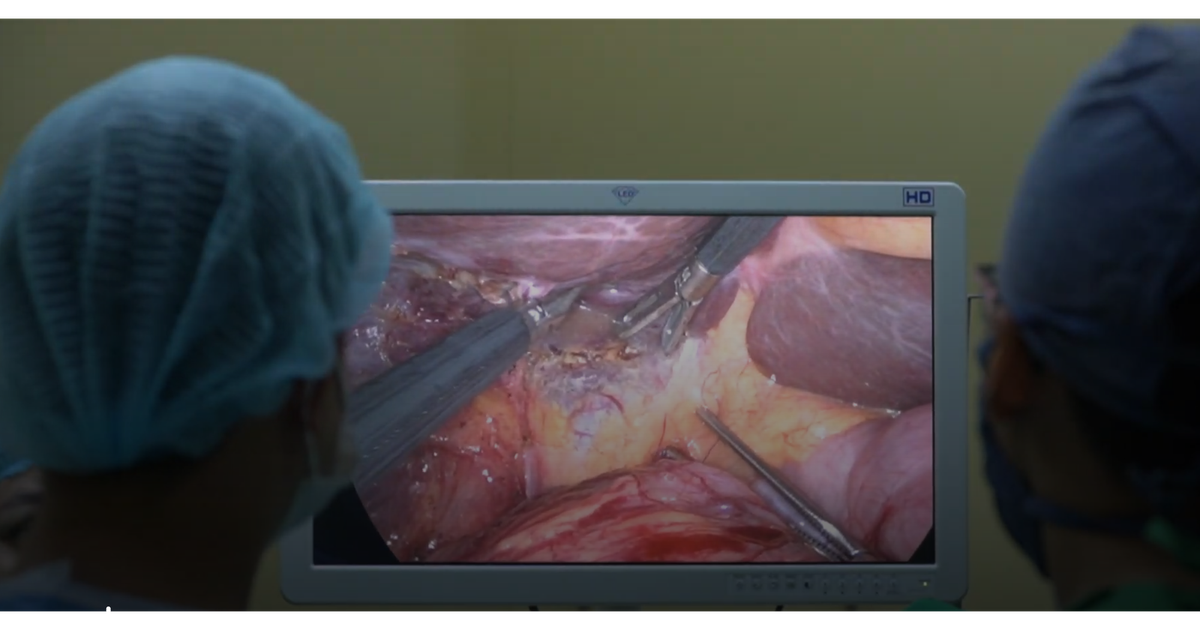According to the Ministry of Health, Vietnam is one of the countries with a high rate of hepatitis B and hepatitis C virus infection in the general population and suffers serious consequences caused by hepatitis virus infection.
According to the Ministry of Health, Vietnam is one of the countries with a high rate of hepatitis B and hepatitis C virus infection in the general population and suffers serious consequences caused by hepatitis virus infection.
According to medical experts, cases of patients with hepatitis B or hepatitis C are often not detected in time and are only hospitalized for treatment when the disease has dangerous complications, which is quite common. The reason is that hepatitis often has a slow, atypical progression, so people with the disease are often subjective.
 |
| Vietnam is one of the countries with a high rate of hepatitis B and hepatitis C virus infection in the general population and suffers serious consequences caused by hepatitis virus infection. |
According to the Ministry of Health, research results in Vietnam show that the rate of hepatitis virus infection in some population groups is from 8 - 25% for hepatitis B virus and about 2.5 - 4.1% for hepatitis C virus, and cases of hepatitis A, D, and E virus infection have also been recorded among hospitalized hepatitis patients.
The number of deaths due to hepatitis B in our country over the past years is more than 23,000 people and the number of deaths due to hepatitis C virus is approximately 7,000 cases.
In addition to viral agents (A, B, C...), the rate of hepatitis caused by alcohol, Eastern and Western medicine, dirty food, environmental pollution... is increasing rapidly.
Data from the Ministry of Health shows that Vietnam is one of the countries with a high burden of viral hepatitis in the Western Pacific region. It is estimated that our country currently has about 6.6 million people with hepatitis B and nearly one million people with chronic hepatitis C. While in developed countries such as the US and Europe, this rate is very low thanks to the vaccination campaign over the past decades.
According to experts, hepatitis B and C are the leading causes of liver cancer in our country. Currently, the rate of new cases and deaths due to liver cancer in Vietnam is the highest with over 25,000 new cases and deaths each year.
There are four types of viral hepatitis, including A, B, C and E. Hepatitis A and E cause acute gastrointestinal infections, while viral hepatitis B and C cause chronic hepatitis, leading to cirrhosis and liver cancer. Of these, A, C and E can be cured, while viral hepatitis B has no cure, only inhibitory drugs.
The danger is that in the early stages, hepatitis often has no obvious symptoms, so very few cases are detected early.
Prolonged inflammation damages liver cells, forming scar tissue that causes cirrhosis, and combined with other factors can lead to liver cancer.
Complications of hepatitis often come early and quickly if the patient has two or more risk factors at the same time, such as viral infection and alcohol abuse.
Health experts are concerned that hepatitis B and hepatitis C are highly contagious in the community, transmitted through blood, sex and from mother to child.
Compared to hepatitis B virus, hepatitis C virus spreads more slowly and has fewer symptoms, but causes very serious consequences. The three most common complications of hepatitis C are liver failure, cirrhosis and liver cancer. Patients can die from one of the three complications above.
Worryingly, most people with chronic hepatitis C have no basic symptoms, only when they have cirrhosis or liver cancer do they show symptoms.
Treatment of hepatitis B is long-term and expensive, but it can be prevented by vaccination against complications of cirrhosis and liver cancer with a rate of up to 95%.
Hepatitis B has a vaccine and has been included in the expanded immunization program for many years, but the rate of infection among Vietnamese people is still very high, and the number of new cases each year is still large.
According to epidemiologists, in addition to infants, there are still many children, adults, and the elderly who have not been vaccinated against hepatitis B, especially during the recent Covid-19 pandemic.
Associate Professor, Dr. Do Duy Cuong, Director of the Tropical Disease Center, Bach Mai Hospital, said that every day the Center records many patients coming for examination and hospitalization but do not know they are infected with hepatitis B, because most of them have silent, discreet symptoms, when they come to the hospital, they have yellow eyes, yellow skin, complications of cirrhosis, acute liver failure, and even liver cancer.
Notably, there are young people who are subjective about this disease. When they discover the disease, they do not treat it, or do not follow the doctor's treatment regimen. After a while, when they feel better, they stop taking the medicine.
If hepatitis B patients are well monitored and take medication as prescribed by their doctor, their condition will stabilize, the risk of cirrhosis and liver cancer will be very low, and the chance of saving their lives will be higher.
Early detection of liver cancer in high-risk groups (including hepatitis B) is a solution to help reduce the burden of hepatocellular carcinoma.
When detected early, effective treatments such as liver resection, liver transplantation, selective internal radiotherapy (SIRT), immunotherapy, targeted therapy… have significantly improved the overall survival time of patients.
However, patients who are diagnosed at an advanced and late stage of the disease have a poor prognosis and very limited overall survival.
To prevent, monitor and treat hepatitis B well, it is recommended that people proactively get tested and screened for hepatitis B to see if they have hepatitis B so that they can have a plan for management, monitoring and treatment.
If the patient has liver disease, he or she should absolutely not use any medicine without a doctor's prescription, especially herbal medicine or oriental medicine of unknown origin.
When hepatitis B is detected, it is necessary to have regular monitoring as prescribed by the doctor to detect early and promptly handle complications caused by hepatitis B such as cirrhosis and liver cancer.
According to Dr. Nguyen Tuan Hai, Safpo/Potec vaccination system, the best way to prevent hepatitis B is vaccination. In addition, it is necessary to limit the ways that can transmit hepatitis B virus.
In addition to vaccination, hepatitis B can also be prevented by not sharing needles or other equipment that may have come into contact with blood or body fluids.
Wear gloves if you have to touch blood or open wounds; make sure the tattoo/piercing facility uses properly sterilized tools
Do not share personal items, such as toothbrushes, razors or nail clippers, and practice safe sex.
Regarding the question of whether it is necessary to test for antibodies after being vaccinated against hepatitis B to see the protective effectiveness of the vaccine, Dr. Hai said that this is not necessary.
The reason for this is that, according to experts, this test does not mean to prove whether the vaccine is effective or not because the vaccine, once injected, is effective in protecting.
"The idea that if the test shows antibodies, it proves the vaccine is effective and vice versa, the vaccine is ineffective is incorrect," said Dr. Tuan Hai.
Source: https://baodautu.vn/ganh-nang-benh-viem-gan-tai-viet-nam-d228508.html



![[Photo] "Beauties" participate in the parade rehearsal at Bien Hoa airport](https://vstatic.vietnam.vn/vietnam/resource/IMAGE/2025/4/11/155502af3384431e918de0e2e585d13a)











































































![[VIDEO] - Tam Ky in the season of white trumpet flowers through sketches](https://vstatic.vietnam.vn/vietnam/resource/IMAGE/2025/4/12/6364ee7bf6ef49269d215280697e1f12)














Comment (0)